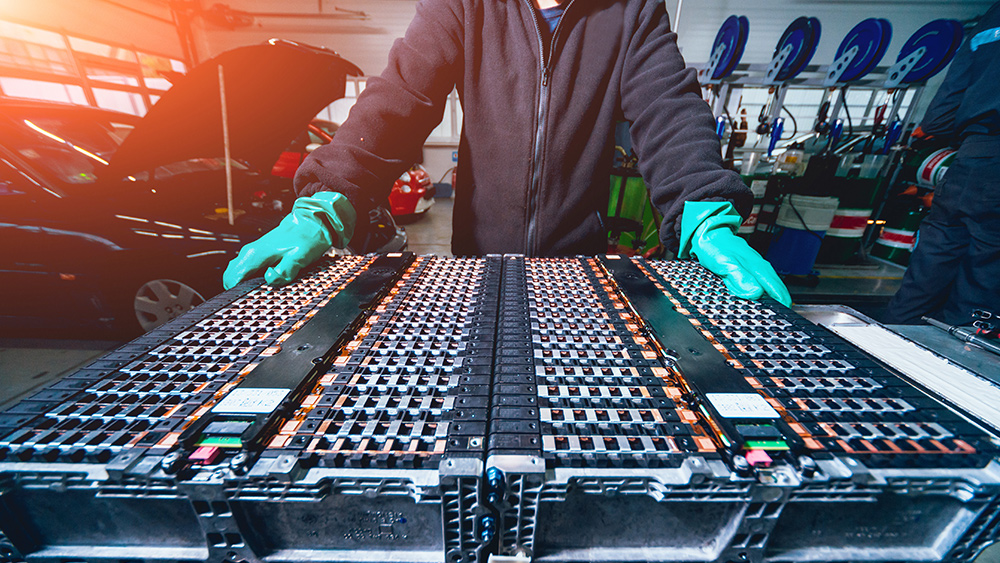
Many workers from major car makers like Stellantis – which makes Chrysler, Jeep and Dodge vehicles – and Ford have been affected by job cuts, given that the push toward EVs has led to reduced labor needs. Stellantis, the company formed after the merger of Fiat Chrysler Automobiles and France's Groupe PSA, announced last month that 2,450 jobs at its Warren, Michigan plant will be axed.
Meanwhile, Ford slashed more than 1,000 jobs at its Rouge Electric Vehicle Center in Dearborn, Michigan. The job cuts followed a drastic downsizing of the production of its all-electric Ford F150 Lightning pickup truck. Ford reported a $132,000 loss in the year's first quarter on each of the 10,000 electric vehicles it sold, 20 percent fewer than the same period last year.
Despite this, the Biden-Harris administration remains adamant with its green tyranny in the form of strict emissions and forced transition to EVs. These draconian green mandates are damaging the industry, especially in the Wolverine State where auto manufacturing plays a crucial role in the economy. While industry jobs in Michigan have been declining since 1990, several auto workers told the New York Post that the administration's green mandates are to blame this time around.
Isaiah Gordon, an employee working on hybrid batteries at Ford's Rawsonville plant, said the forced transition to EVs is damaging the industry.
"I'm sure all the people I work with are glad to have jobs," said Gordon, also a member of the United Auto Workers (UAW) union. But the problem is in these electric-vehicle departments, you're laying people off."
Chris Vitale, a technician mechanic for Chrysler, agreed with the sentiments of his fellow UAW member. EVs require considerably less labor to produce than gas powered vehicles, he admitted.
"Putting an electric motor together is like building a pinwheel or a paper airplane," Vitale told the Post. "There's some level of work that's involved with it, but the skill level really isn't there."
Biden-Harris emission standards nearly impossible to meet
Aside from the decreased labor needs for EV assembly, workers also blame the strict emission standards imposed by the Biden-Harris administration that are nearly impossible to meet. The mandates seek to force the auto industry to produce more EVs regardless of consumer demand.
"It's the way the government now wants to go," Gordon remarked. "And they completely made the wrong decisions on it because if you look, Ford has lost a lot of money." (Related: Electric vehicles are a SCAM – here's why.)
Vitale meanwhile told the Post that even hybrid EVs aren't cutting it under the new standards.
"You look at a product like a Ford hybrid Escape, a hybrid EV, and it’s one of the smaller SUVs. It's barely a car. And the carbon footprint of that, the grams per mile (g/mi) is 225. So you’ve got a vehicle there that is 55 g/mi in excess of the standard that will be here in two model years."
Following the layoffs, Stellantis announced a $406 million investment into Michigan auto plants as part of a concession to the UAW.
Still, Vitale remains skeptical. "I can tell you they've been promising investment where I work at the tech center for years now, and I'll just put it this way: It doesn't appear to be happening," he said. "They can promise one thing and change that plan tomorrow."
Visit GreenTyranny.news for similar stories.
Watch as Trump says "there won't be an auto industry left" if Kamala wins.
This video is from the NewsClips channel on Brighteon.com.
More related stories:
Only half of Ford dealers agreed to sell electric vehicles in 2024.
Study finds electric vehicles pollute the environment 1,850 times more than gas-powered cars.
Electric vehicles have more quality issues than combustion engine cars, new study finds.
Electric vehicles are unreliable and not cost-efficient – especially in cold weather.
Sources include:
Please contact us for more information.






















